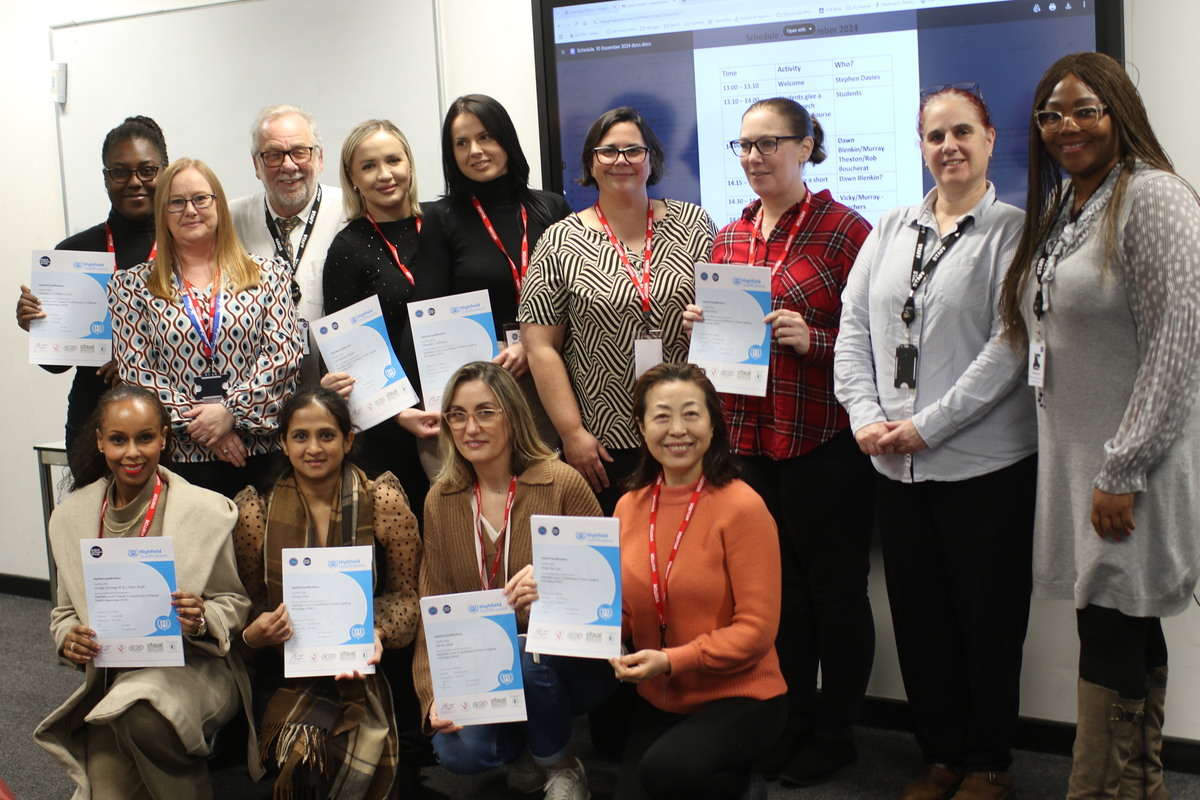Once in a generation opportunity to develop a qualifications system that benefits all students

Secretary of State @NadhimZahawi letter to @Ofqual on level 3 qualifications Reform
This letter, from Nadhim Zahawi to Jo Saxton at Ofqual, sets out the Secretary of State’s priorities for alternative academic and technical qualifications at level 3.
It asks Ofqual to consider how its regulatory powers can most appropriately be used to ensure the quality and consistency of this part of the qualifications landscape:
Dear Jo,
In July 2021, we published the Government’s response to our public
consultation on the Review of Post-16 Qualifications at level 3 in
England. I am writing to you now to set out my further steers on the
development of the qualifications I believe we require to make up the
funded landscape at level 3 for post-16 students.
As you know, A levels and new T Levels are our flagship level 3
qualifications for 16 to 19 year olds. A levels are purely academic
qualifications which seek to support students to progress to
undergraduate academic study, particularly (although not only) in the
same subject area, while T Level technical qualifications are based on
occupational standards and their primary purpose is to support entry to
skilled employment, either directly or following a period of higher
technical education.
Our reforms will simplify the current system, ensuring that all
qualifications alongside A levels and T Levels are fit for purpose, are
high-quality and lead to good outcomes.
In particular, we intend the future landscape:
- to be clearer to navigate for students and other users of qualifications;
- to be populated by high-quality provision for which there is a clear necessity; and
- to ensure students are better equipped to progress to their intended destinations.
To bring about these aims, I have decided that the provision at this level must be
strengthened in comparison to the approaches currently in place. I set
out further below my expectations in this regard.
A fundamental feature of our proposals is there being an improved level
of clarity about the purpose of qualifications and their intended
destination points for students. In particular, this relates to whether a
qualification is intended primarily to support progression to further
academic study or into skilled employment. As such, I address these
parts of the landscape in turn.
Alternative academic qualifications
Government policy is to ensure there is a meaningful offer of high quality
academic qualifications that can be taken alongside or as
alternatives to A levels where there is a clear need for the skills and
knowledge they contain to support progression to higher education.
These qualifications – which might be similar to those termed ‘Applied
Generals’ in the current landscape – will need to prepare students well
for future study; particularly with respect to high-quality higher
education. To achieve this purpose, I believe that these qualifications
must incorporate a significant assessment of knowledge and
understanding, but with an emphasis also on the ability to apply this in
various contexts.
As set out in the consultation response, it will be important that the
necessity of these qualifications can be demonstrated. In that regard, I
would view them as comprising two broad categories. The first are
qualifications with an emphasis on practical or applied knowledge and
skills that – when taken with A levels – would complement A level study
and thereby support progression to an aligned subject area at higher
education. The second are qualifications in subject areas with high
levels of practical or performance-based content that is not available
through A levels. These may be larger qualifications (equivalent in size
to a student’s full study programme, providing there is not overlap with
T Levels) owing to the need to develop the requisite skills and
knowledge to enable progression to aligned areas of higher education.
I would like Ofqual to consider how it can help ensure the quality and
consistency of this part of the future landscape, and how its range of
regulatory powers can most appropriately be deployed to realise this
aim.
Any qualifications taken alongside or instead of A levels must be high
quality level 3 qualifications. This does not mean they must look exactly
like A levels – I recognise that variations and flexibilities in approach are
important and these qualifications must offer genuine alternatives to
students. As such, I am content that existing approaches to qualification
design and delivery proceed where these have particular benefits for
students and their centres. However, improving quality within this is also
key, as are the overall aims of these reforms, and I would encourage
you to consider carefully the mitigation of attendant risks.
To date, there has been a separation between those qualifications that
attract public funding and those qualifications that can count in
performance tables. In recent years, the Department has published
requirements that qualifications must meet in order to feature on
performance tables but it has not been necessary for qualifications to
meet these requirements to be eligible for public funding – leading to
two separate categories of qualifications, those with funding and those
also counting in performance tables. My intention going forward is to
minimise these differences in relation to the majority of qualifications, so
that most meet the requirements to count in performance tables. This
approach may mean that the Department publishes minimal separate
performance table requirements in the future landscape. You should,
therefore, consider the potential for eligibility to count in performance
tables as an important purpose of these qualifications when considering
your approach to their regulation.
Linked to this, I recognise the work that Ofqual has performed to date
around investigating the issues with the maintenance of standards in
existing ‘Applied General’ and ‘Tech Level’ qualifications. I would like
you to explore further how best to secure grading standards, over time
and between awarding organisations, in these academic qualifications
going forward.
Alternative technical qualifications
In this context, alternative technical qualifications are those non-T Level
technical qualifications that have the primary purpose of identifying
students that have attained the knowledge, skills and behaviours that
represent competence in a given occupation. The alignment of these
qualifications to occupational standards set by employers through the
Institute for Apprenticeships and Technical Education represents a
significant step in improving their quality. The level of change to existing
provision that alignment to occupational standards will represent may in
some cases be considerable, but in my view is necessary to ensure that
these qualifications provide effective progression for students.
T Levels will be the primary technical offer for 16 to 19 year olds. The
consultation response set out the types of alternative technical
qualification we intend to fund for 16 to 19 year olds alongside T Levels,
and the types of alternative technical qualification we intend to fund for
adults.
I would like Ofqual to consider its role in helping further ensure the
quality of these alternative technical qualifications. Particularly important
in this context will be how Ofqual and the Institute continue to work
together. The Skills and Post-16 Education Bill sets out expectations in
this regard, consolidating the approaches you have been taking
successfully to date in developing the overarching framework for
assurance of technical qualifications, with each organisation drawing on
its unique expertise and powers, so that employers and students are
rightly at the heart of the qualifications landscape.
Current technical qualifications have a diverse range of approaches to
specifying content, assessment and grading students. Some diversity is
likely to be necessary into the future to ensure that these alternative
technical qualifications meet the needs of employers, students and
centres. I would like you to consider how the diverse needs of students,
employers and centres can be accommodated through your regulatory
approach, while also supporting the aim for high-quality qualifications.
With that in mind, I would be satisfied that elements of modular
assessment continue to be allowed to exist in alternative technical
qualifications where this is necessary and appropriate, and that this
does not compromise the demonstration of occupational competence.
The emphasis should be on qualification methodologies delivering
effectively against their clearly-stated purposes, which in this context
would be assessment of occupational competence against employer led standards.
Conclusion
I am wholly mindful of the ambitious nature of this programme, and of
the demanding context as the sector deals with the impacts of the
Covid-19 pandemic. My desire is for these changes to reflect a
meaningful improvement in the quality of these qualifications, ensuring
students receive the best possible preparation whether they are
progressing to higher education or into skilled employment.
In parallel we must take due account of the disruption and uncertainty
that may arise for schools and colleges throughout this process,
particularly as we build to the first introduction of reformed qualifications
from 2024/25. Providers have seen a number of changes to the
qualifications they deliver in recent years and it is important that we
maintain the balance between those critical imperatives of improving
quality and minimising disruption as we take forward these vital reforms.
Finally, I would like to thank you and your officials for your continued
engagement with my Department. This is a once in a generation
opportunity to develop a qualifications system that benefits all students,
and I look forward to continuing to work together as we implement these
important changes.
Yours sincerely,
Rt Hon Nadhim Zahawi MP, Secretary of State for Education











Responses